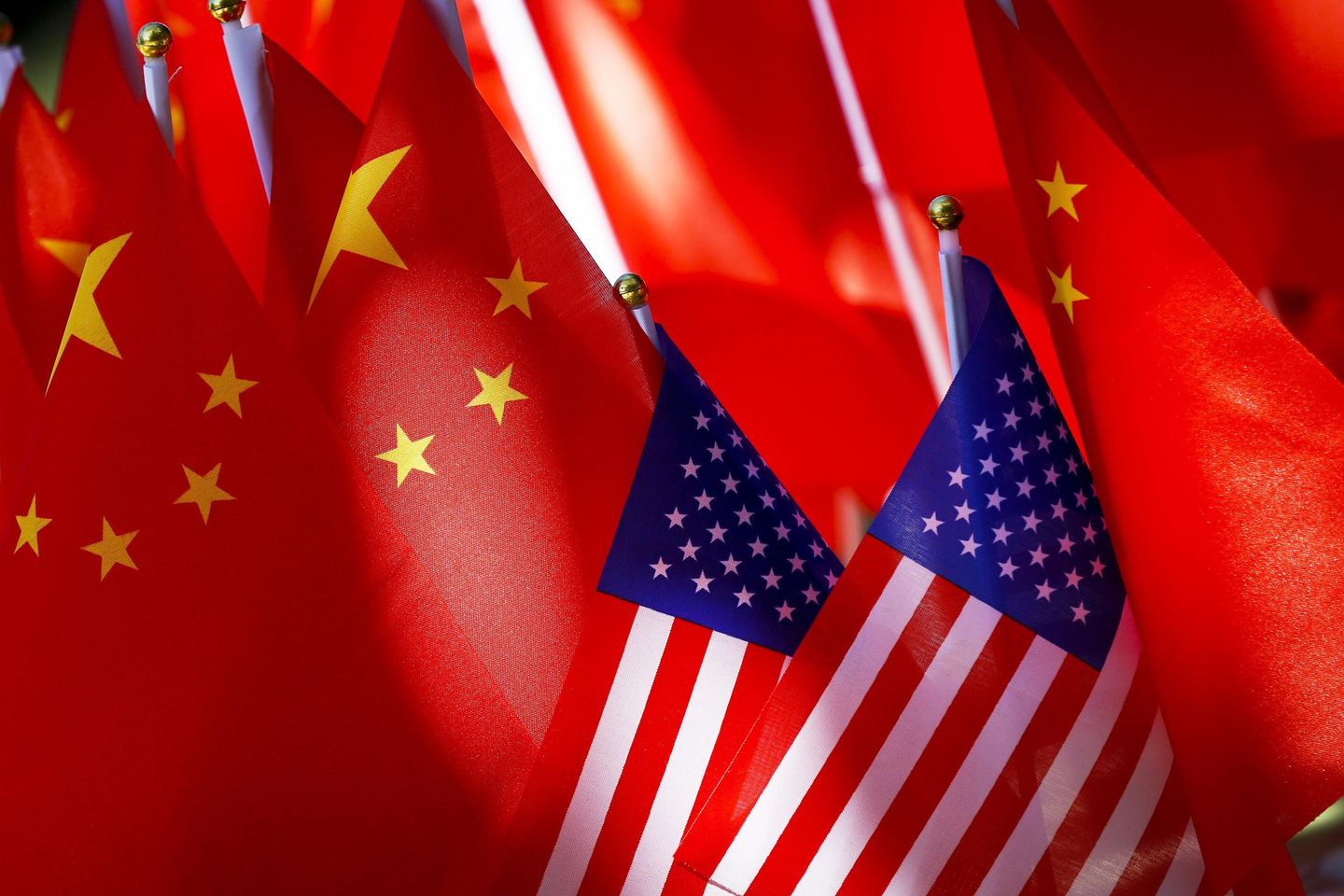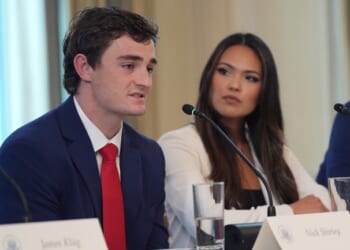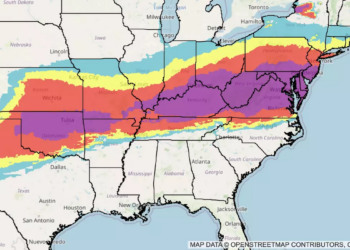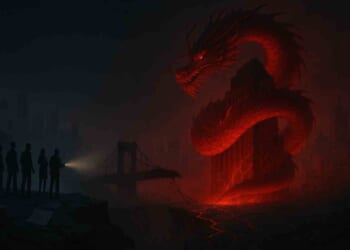
Chinese electronic penetrations of key critical infrastructure systems in the United States are an example of Beijing’s conducting “unrestricted warfare,” according to the four-star general who until recently headed the National Security Agency.
Chinese state-sponsored computer intrusions include break-ins to control systems running critical water distribution systems, electric power grid networks and transportation systems, Retired Air Force Gen. Tim Haugh, who was forced out by President Trump in April, said on CBS’ “60 Minutes.”
“I think initially we were surprised that China would target every American with these capabilities,” he said, adding that it violates international norms and U.S. military targeting rules.
“That the fact that they would go after basic services as part of their effort that they have identified as unrestricted warfare is unconscionable,” he said.
In his first public comments since being forced into retirement, Gen. Haugh mostly sidestepped questions about Mr. Trump dismissing him as NSA director and commander of U.S. Cyber Command.
Gen. Haugh said he got a phone call in April from a Pentagon official who told him the president had decided to remove him from office.
The removal followed criticism from online activist Laura Loomer, who alleged that the general was disloyal because of his appointment under former President Joe Biden.
Asked about the firing, Gen. Haugh denied being disloyal.
“I know in my heart that every day I wanted to achieve the things for our nation that would make us more secure and make every American safe, and that continued to my last day of service,” he said.
Asked if the cyber operations are indications that China is preparing for war with the United States, Gen. Haugh said: “There was no other reason to target those systems. There’s no advantage to be gained economically. There was no foreign intelligence-collection value. The only value would be for use in a crisis or a conflict.”
NSA and other security agencies remain locked in a daily context to try and deny China access to the infrastructure networks.
Yet, China-origin cyber operators are attempting to gain access to U.S. telecommunications networks “to be able to target critical infrastructure, both in the United States and in other countries,” the general said.
“And they are doing that to try to ensure that they have an advantage in a crisis or a conflict.”
Gen. Haugh’s comments provided some of the first details on China’s mass cyber campaigns stretching back more than a decade. The attacks include both pre-sabotage break-ins and electronic theft of massive amounts of data on Americans that analysts believe are part of Chinese artificial intelligence technology development for both military and commercial means.
“They targeted water. They targeted electrical power infrastructure; transportation are examples of the types of things that were targeted,” Gen. Haugh said. “And in many cases, they’re vulnerable.”
The sectors hit by the Chinese include telecommunications networks, electrical grids, water treatment and the New York City subway system. Also targeted were 13 gas pipeline operators, the port of Houston and major telephone companies.
The targeting includes multiple intrusions at American utilities discovered in 2023. China had been on some of these computer networks for at least five years, he said.
One example occurred in 2023 when the FBI notified the director of an electric and water treatment plant in Littleton, Massachusetts, that its control networks were targeted by Chinese hackers.
The town of 10,000 people was among 200 similar locations facing network intrusions.
“If you are willing to go after a small water provider in Littleton, Massachusetts, what other target is off the list? So, from that perspective, this is a national threat. It’s one that needs to be addressed. But it’s also one that every American should understand, because if they’re willing to go after that small provider that doesn’t have a national security connection, that means every target is on the list,” Gen. Haugh said.
The operations by China are part of preparation for a future conflict or crisis, such as a conflict in the Indo-Pacific region. The motivation by the Chinese military is to prepare to cause major distractions by disrupting critical infrastructure that will turn U.S. national leaders’ attention away from the conflict and toward handling domestic problems, he said.
“That would distract us, distract resources, make it more difficult for us to mobilize in a crisis,” Gen. Haugh said, noting simultaneous attacks on towns like Littleton, combined with information operations, would have a major impact.
Gen. Haugh said after gaining access, the Chinese attempt to remain dormant and do not seek to gather intelligence or conduct other activities.
The intrusions often are carried out through automated hacking that involves initial scanning of millions of devices daily, he said.
The U.S. needs to dominate cyberspace and prevent China from stealing data that will damage the U.S. economy and conduct operations that would assist in shutting down the entire country in a crisis. “We can’t let that happen,” Gen. Haugh said.
For years, China has denied all U.S. charges of conducting infrastructure cyberattacks.
Unrestricted Warfare is the title of a 1999 book published by two People’s Liberation Army colonels, Qiao Liang and Wang Xiangsui, that is said to remain a major influence on current PLA strategy and operations.
The two colonels advocated an entirely new way of waging war that employs unbounded military and non-military power. The objective is to allow a weaker China to defeat a stronger U.S.
Col. Qiao told state-run media in discussing the new strategy that “the first rule of unrestricted warfare is that there are no rules, with nothing forbidden.”
The book urged the Chinese military to use a range of options for war, including economic warfare and even terrorism. The goal is to ensure that the ruling Chinese Communist Party remains in power and achieves its goal of global domination.
The colonels said the U.S. and other countries would not adopt the PLA’s brand of unbounded warfare because they followed the rules; China, however, was prepared to break the rules and exploit loopholes.
Shortly after the book was published, Chinese authorities removed all copies from bookstores. Outside China, pro-China academics criticized the book as the work of “fringe” military thinkers.
Michael Pillsbury, a China specialist, suggested in his book “The Hundred Year Marathon” that the book remains influential and efforts to downplay the book may be strategic misdirection.
“The Chinese government disavowed the book as unrepresentative of its thinking, though it was published by the People’s Liberation Army press and both authors were promoted after the book’s publication,” he wrote.
The use of several key tenets of unrestricted warfare elements accelerated under Chinese President Xi Jinping.
Chinese cyberattacks like those outlined by Gen. Haugh, along with legal warfare, information warfare and recently trade warfare, like the cut off of exports of rare earth minerals and products made from them, remain key strategic activities against the U.S.
Josh Baughman, an analyst with the Air Force China Aerospace Studies Institute, dismissed the book Unrestricted Warfare as “not authoritative” of current Chinese military thinking.
“[Unrestricted Warfare] is not a textbook or a ’master plan’ to lead China in conflict against the U.S. and never was intended to be,” Mr. Baughman wrote in a 2022 report.
“Understanding China and its strategic intentions is difficult. While it would be nice for China to give us all the answers in an easily accessible PDF translated into English, with [Unrestricted Warfare] it is simply not the case.”
















